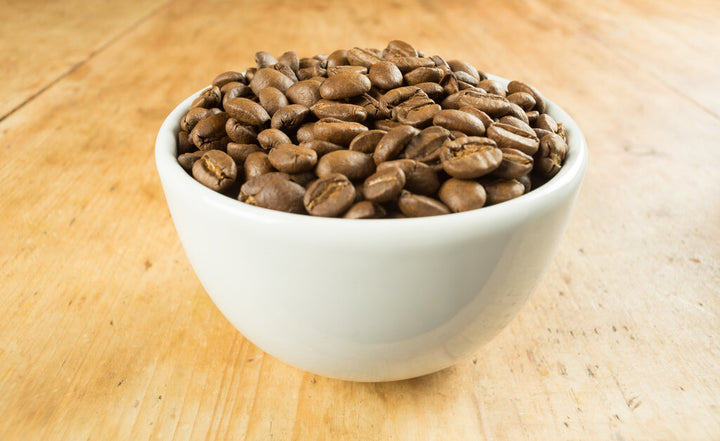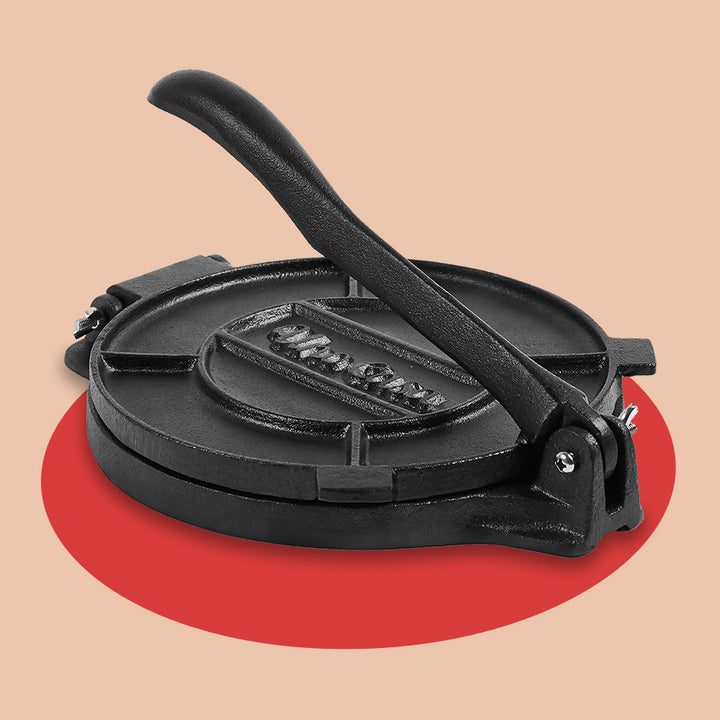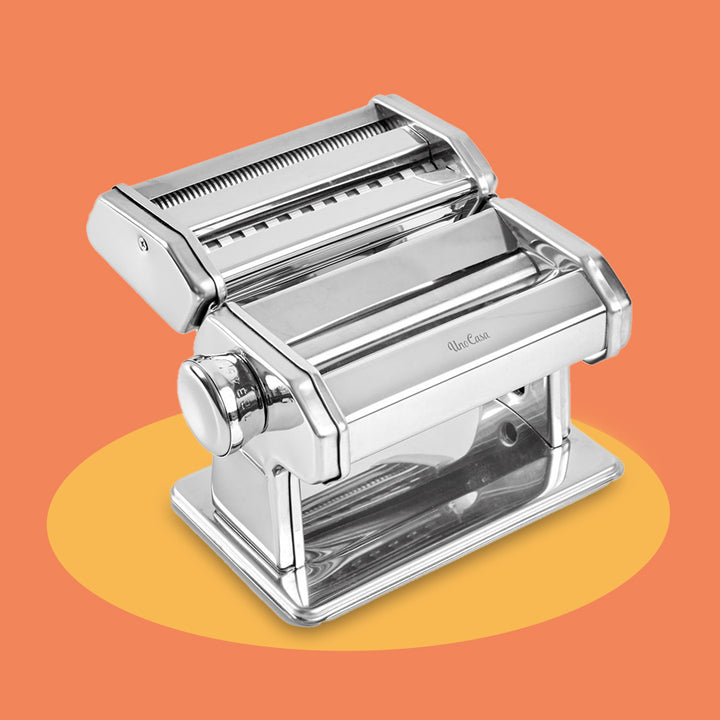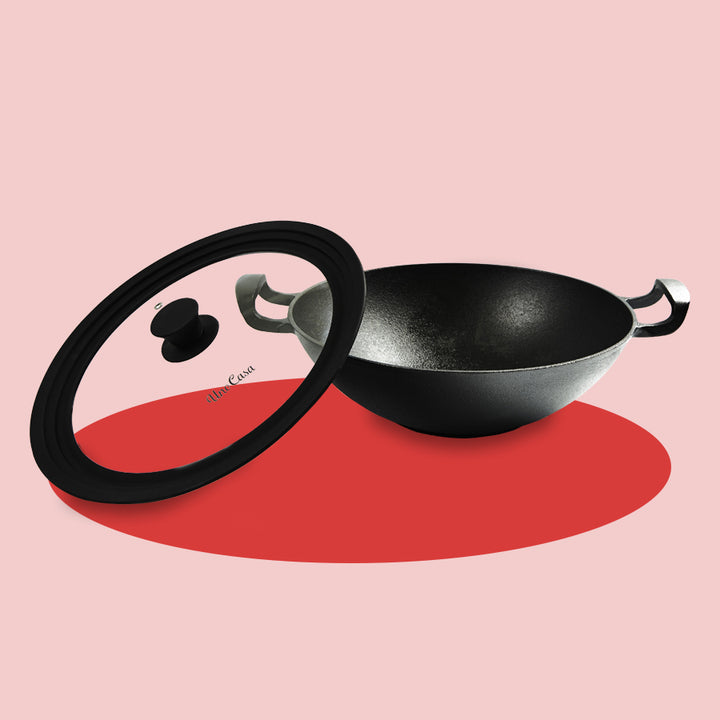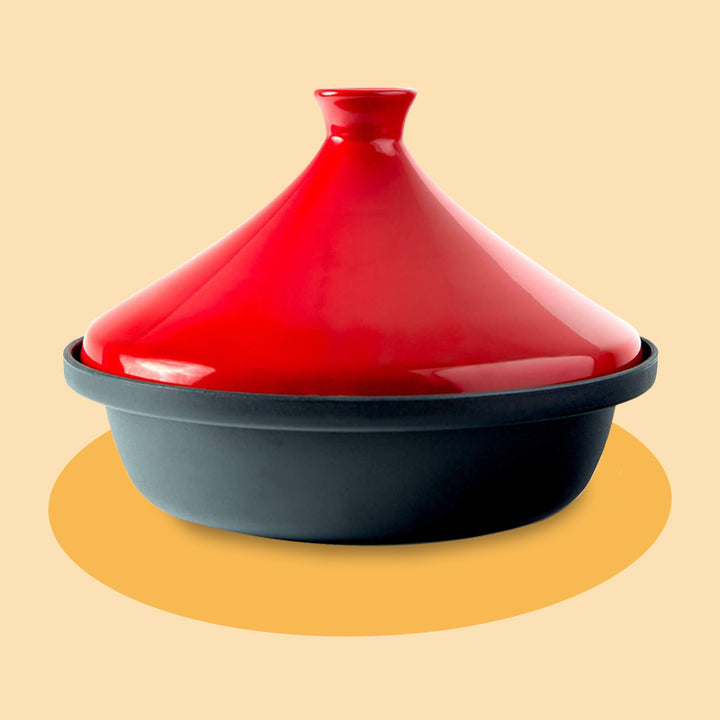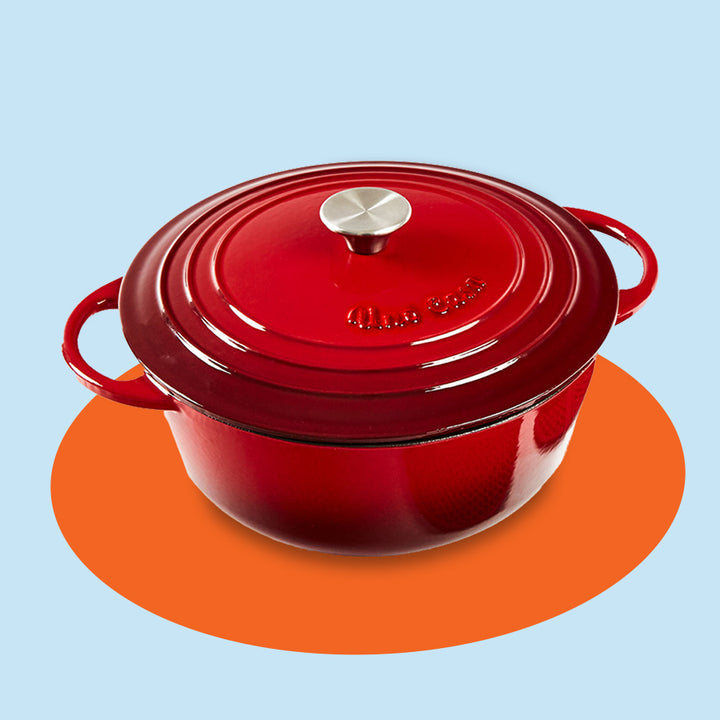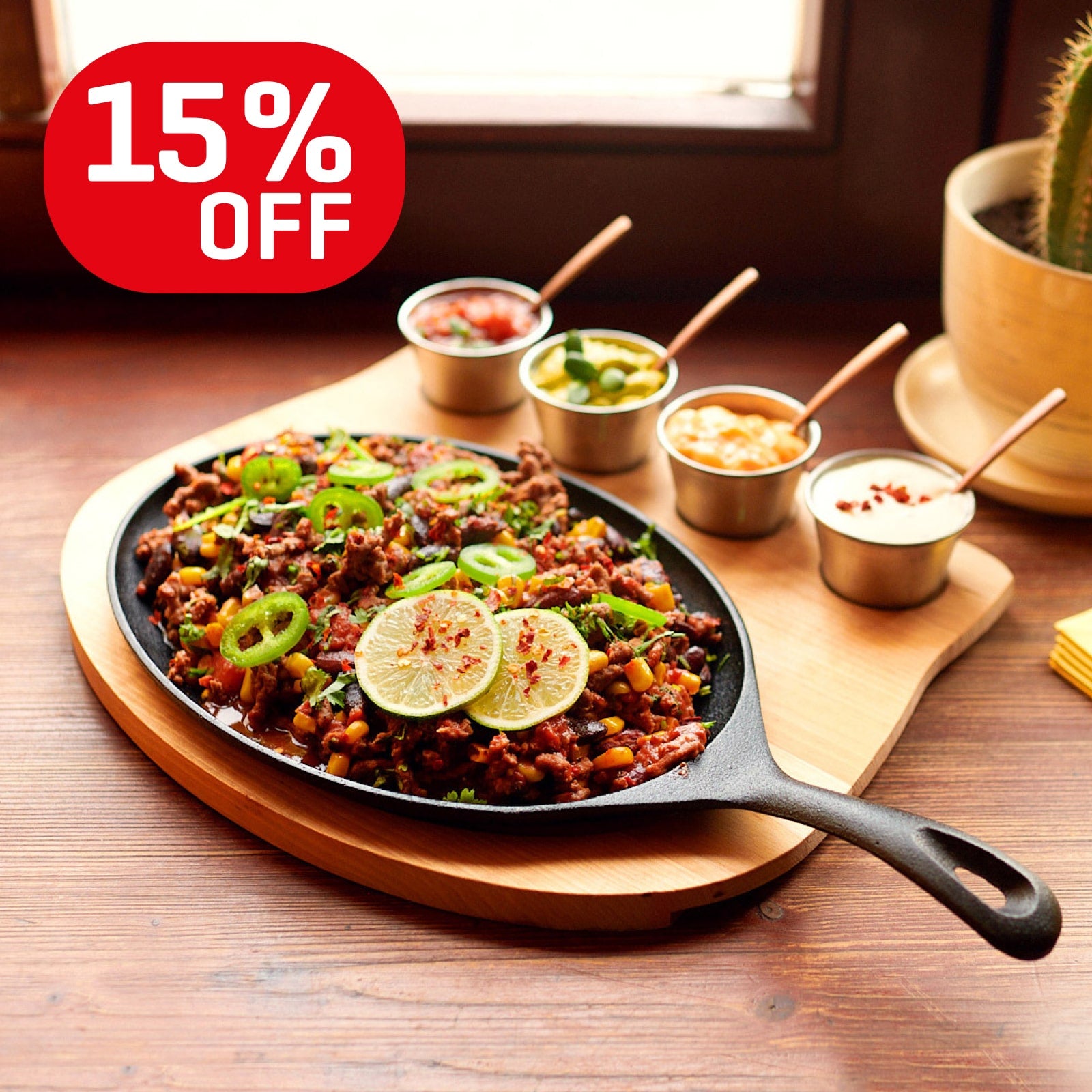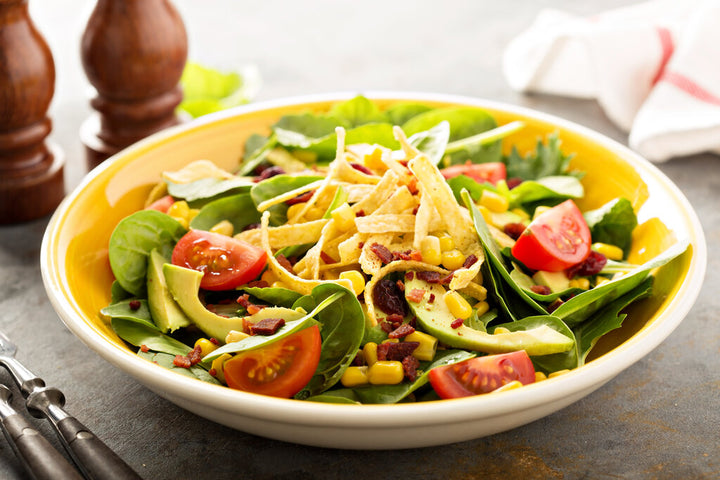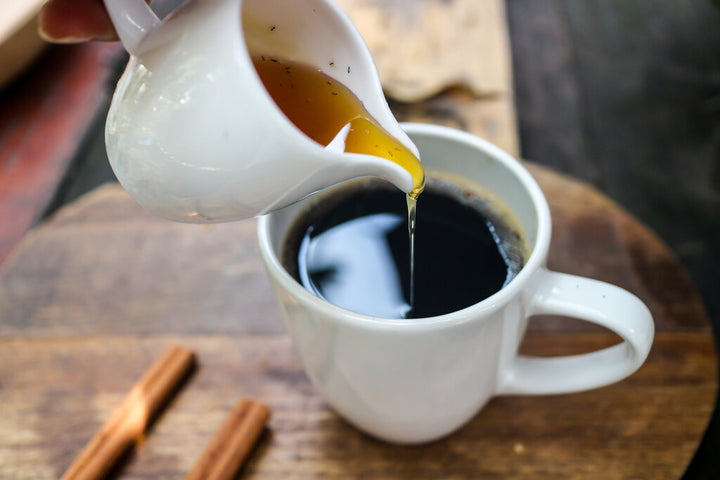Types of Coffee: A Journey Through These Addictive Beans, Roasts, and Top-Notch Brewing Methods

The world of coffee is a deliciously mysterious place, with so many different styles of coffee it can make any newbie's head spin. Whether you like a straight-up shot of espresso or a choco-pumpkin-vanilla-mint beverage that barely resembles coffee anymore, we've got your complete coffee guide here.
What is coffee?
First things first, what is coffee? While most of us know it's a bean sourced from a plant, more specifically, it's brewed from the berries of Coffea plants after they're harvested and roasted. Its bitter and acidic flavor is highly sought after by most warm-blooded adults looking for a warm (or cold!), soothing beverage paired with a nice jolt of caffeine.
The thing with coffee is it offers plenty of variety. While it's great to have options, it's hard to choose between virtually endless coffee flavors, espresso drinks, and different coffee roasts.
Follow our guide to learn more about this delicious elixir and read all about the different coffee types explained!
Four different types of coffee beans
Within the Coffea plant category, we see four main species most often used for coffee. Arabica is by far the most popular, but all four kinds of coffee beans offer drinkers a little something different.
Bean #1: Arabica - Coffee Arabica
Arabica beans are the most common you'll run into at coffee shops and grocery stores. We know and love these beans for their sweet, delicate flavor, with low acid in their brew. These beans need plenty of rain, and we generally find them growing on farms high above sea level.
The Arabica bean is prone to crop disease, which drives up the cost of these beans globally. The delicate flavor of Arabica coffee makes it best enjoyed hot over cold and black over blended with cream or milk.
Bean #2: Robusta - Coffea Canephora
The Robusta beans are the second most popular choice for coffee globally and take the top spot in most of Europe, Africa, and the Middle East. This coffee bean has one of the most accurate coffee names - it's much more potent in flavor than other beans, like the Arabica.
Some may think it tastes rubbery or burnt, while others can't get enough of this coffee. The best way to use Robusta is in popular types of coffee blends. Generally, mixing 3 parts Arabica beans to 1 part Robusta gives you a bit of a flavor boost while saving roasters up to 20% of their costs.
If you like cream and sugar in your coffee, Robusta might be the proper brew for you.
Bean #3: Liberica - Coffea Liberica
The Liberica coffee beans are a much rarer variety that needs a particular climate to grow. The small and complex production doesn't allow for scaling, so you won't see them offered by many coffee shops or grocery stores.
Liberica brews have a somewhat woody flavor with a fruity and floral nose.
Bean #4: Excelsa - Coffea Liberica var. Dewevrei
The Excelsa bean is a variant of the Liberica family but with some distinctive notes that earn its own title. It's a Southeast Asian coffee bean that is relatively rare to find - those that do find it delight in its tart, fruity taste with a unique roasting profile.
The top types of coffee drinks
Here are the basic coffees you'll run into at most cafes - as you'd expect, you can alter these with plenty of different coffee add-ins like milk, honey, and plant-based milk alternatives.
Black Coffee
According to who you ask, this is the only "real" coffee. Black coffee is a little misleading, as it's more of a dark brown color, but we digress. It's a simple combination of hot water and roasted, ground coffee beans - no milk, no sugar.
Espresso
Espresso is another type of black coffee, with a special roast and brew method. High-pressure steam forces through the coffee beans for a thick coffee with creamy foam on top, sans real cream.
If you like highly caffeinated coffees, you'll love drinking espresso. But you'll also need a taste for bold coffee flavors to enjoy a shot of espresso!
Ristretto
A ristretto is a "short espresso," made using the same method but using half the water for a heavier concentration.
Americano
An americano is an Italian take on American tastes, which may connect to Americans looking to ration scarce coffee stores with extra water in Italy during WWII. More hot water pours into the mug after brewing an espresso shot, watering down the drink.
Doppio
A doppio is a hot double shot of espresso passed through a double spouted espresso machine.
Milk-based coffee drinks
Many people choose to add milk and milk alternatives into their brewed java. Still, some coffee drinks are made with milk with specific preparations and portions, like the popular cafe options below.
Flat White
This milk-based espresso drink has a double-shot of espresso topped with a thin, flat layer of steamed milk - the goal is not to achieve super frothy foam here.
Cappuccino
The cappuccino is one of the most popular milk coffees around. Each mug is ⅓ espresso, ⅓ steamed milk, and ⅓ fluffy foamed milk. The heavier steamed milk mixes into the espresso while the dreamy foam sits on top of your mug, waiting to give you a milk stache.
Latte
A latte is similar to a cappuccino but with slightly different proportions. A latte contains more steamed milk and very little foam, with the resulting drink being a lot lighter in that strong espresso flavor.
Macchiato
A macchiato is a single espresso shot with a "stain" of steamed milk on the surface to slightly cut the bitter espresso flavor with a dash of richness.
Cortado
A cortado is a 50/50 combination of espresso and steamed milk for a slightly less milky texture than a flat white. It's usually served in a glass with a wire handle and base over the typical ceramic mug.
Mochaccino or Mocha
The mocha is a latte with an added chocolate flavor shot that's sweet and creamy, with a mild hint of bitter espresso flavor remaining. Many people dip their toes into the world of coffee drinks with this easy sipper.
The best types of iced coffee
One of the best ways to make coffee on a hot summer day? A refreshingly cool cup of iced coffee. If you haven't yet, you need to try one of these options!
Iced Coffee
Iced coffee is simple, containing traditionally brewed coffee served cool. Many people add in cold milk, ice, and all sorts of sweeteners.
Cold-Brew Coffee
Cold-brew coffee uses a unique brewing method for ground coffee as it steeps in cold water, usually overnight. After you strain it, you have a simple batch of cold brew. Keep in mind that cold brew contains less caffeine than hot-brewed coffee, as the lack of heat means the beans release less caffeine.
Nitro Coffee
If you've been to Starbucks or a hipster coffee joint, you've heard of nitro coffee. This unique cold coffee is infused with nitrogen, giving it a creamy beer-like mouth feel.
Different types of coffee roasts
We always roast coffee beans before brewing coffee because the roasting process builds their flavor and aroma, cutting down on coffee beans' naturally grassy taste.
The roasting process causes molecular changes within the beans themselves and gives them a crunch - perfect for grinding and brewing.
The world of coffee roasting can be pretty confusing, as there isn't much in industry standardization. Most roasters have unique names for their roasts, which doesn't help make the decision easy when buying a bag of coffee.
Most people begin to associate their bean preferences with a general color category - light, medium, medium-dark, and dark roasts. The depth of the color corresponds with how long it's been roasted, with light beans roasted the shortest time and dark beans roasted the longest.
The lighter roasts tend to contain more delicate flavors, while darker roasts are heavy and more robust in flavor. Don't associate the stronger flavor with caffeine - dark roasts have the least amount of caffeine, as the bean roasting process destroys some of the beans' contents.
Light Roast
Lightly-roasted beans have a light brown hue and a milder flavor, with no surface oils present.
Medium Roast
This roast has a slightly deeper medium-brown color with a stronger flavor and non-oily surface. It's ranked as the most popular roast in the US.
Medium-Dark Roast
This dark, rich bean has a more robust flavor, bittersweet aftertaste, and some bean oils on the coffee's surface.
Dark Roast
This long-roasted coffee comes from shiny black beans with a strong bitter flavor and an oily surface. Dark roasts tend to have more bitterness but less acidity than other roasts.
The top 4 brewing methods
Pour-Over Coffee
Most ultra-hip baristas use a gooseneck kettle to make a pour-over coffee. A conical filter is placed in a pour-over dripped over a mug or small pot filled with grounds, and water slowly pours over the beans in a circular motion. Many consider pour-over coffee maker to be the ultimate in coffee preparation.
Drip Coffee
Drip coffee is quite similar to the pour-over method but with an automatic machine preparation instead of manual hand pouring. Boiling water drips over ground coffee, through a filter, and into a pot. If you're interested to learn more, check this article on how to make drip coffee.
Instant Coffee
Though instant coffee has all but disappeared in America, several other countries consume this convenient option often. Hot water mixes with powdered coffee right in the mug - no draining or filtering needed!
Immersion Coffee
Immersion coffee has a robust and rich flavor because the grounds are steeped directly in hot water for several minutes. French press is the most common example of immersion coffee brewing in action.
Final notes on coffee types
We get it! Ordering at the fancy coffee shop down the road is a little confusing. We hope this coffee brew guide has helped make the world of coffee a little less confusing for you.
There can be some pretty passionate opinions floating around the coffee industry, but keep in mind that the best coffee is the one that tastes best to you. We all have different tastes, and none of them are wrong!Leave a comment
Comments will be approved before showing up.
Also in Tips
